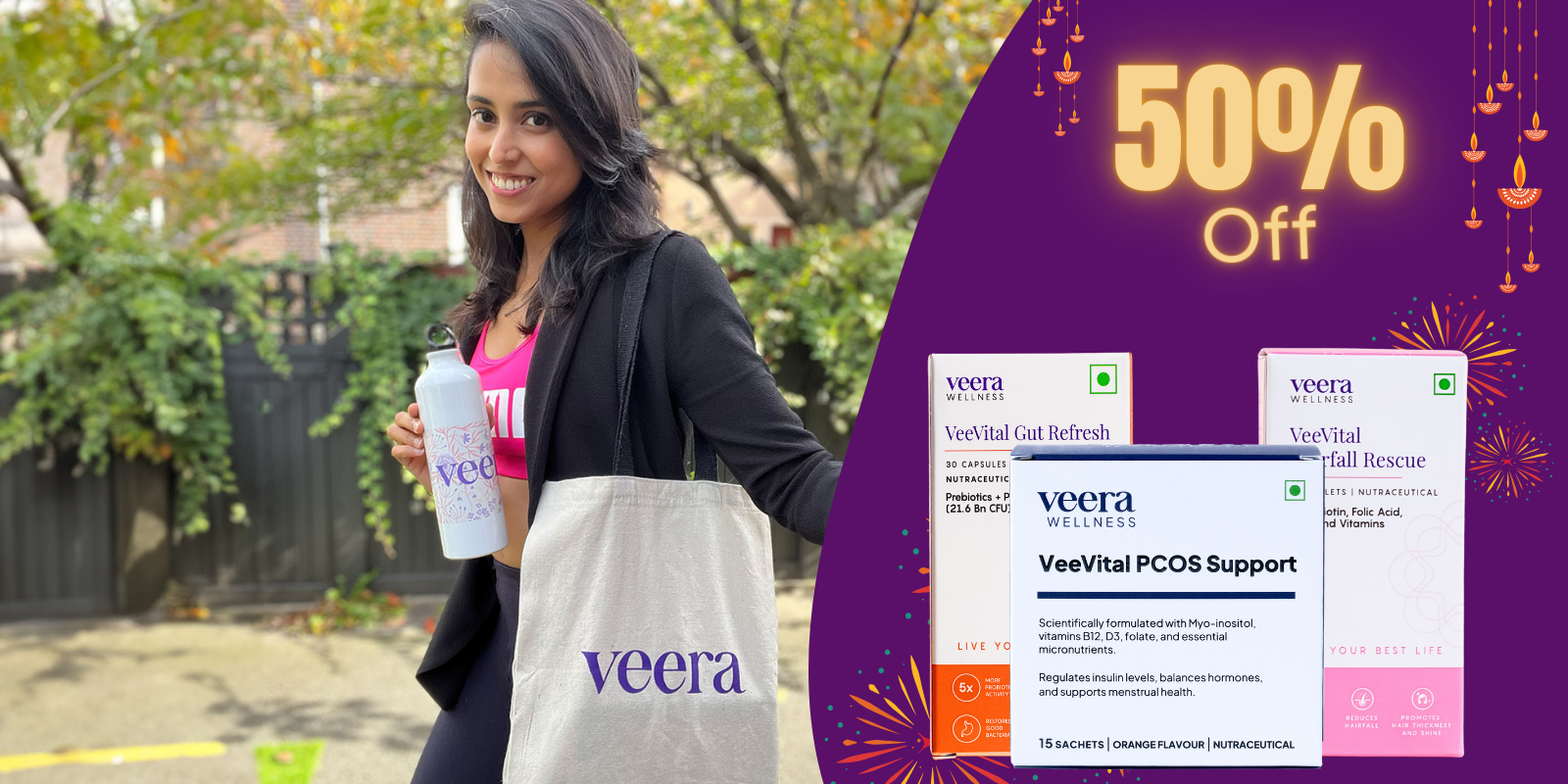A PCOS diet is not an invitation to follow a fancy list of ingredients — in fact you’ll realise that you may already use most of these ingredients in your regular cooking/meals. However, you need to be mindful about limiting processed, saturated foods and instead switch to healthier, wholesome options. There is an array of diet plans and nutrition advice available online but to help you make an informed choice about what works in a PCOS diet, here are some tips you can follow.
Choose foods with a low Glycemic Index (GI)
Glycemic Index (GI) is a measure of how fast a food item increases sugar levels in your blood. Foods with a low GI increase your blood sugar level gradually compared to foods with a high GI, which cause a sugar spike in your blood.
Insulin is a hormone that is released in your blood when blood sugar levels increase. It is responsible for instructing your muscles to absorb sugar from the blood. Most women with PCOS have insulin resistance — their muscles are not responding to the instructions of the insulin hormone, and to fix that, their body produces even more insulin. This results in high insulin levels in the blood, which causes PCOS symptoms like weight gain, hair loss and excess facial and body hair.
In order to manage these symptoms, it is very important to not spike up your insulin levels. Your body releases insulin in the blood when your blood sugar levels are high, so it makes sense to eat foods which don’t cause a spike in sugar levels – and this is why it is important for you to choose low GI foods!
Choose complex carbohydrates
Carbohydrates provide energy for our body’s day to day functioning. They are digested to release glucose (sugar), which is then absorbed and broken down by our muscles for energy.
Carbohydrates can be of two types — simple and complex. Simple carbohydrates are sugars that are digested easily and are quickly absorbed in the blood, while complex carbohydrates are higher in fiber and digest slowly, so they release sugar gradually into the blood. This makes complex carbohydrates more filling as they release sugar for energy long after you have finished eating, which makes them great for weight loss!
On the other hand, simple carbohydrates cause a sudden spike in sugar levels – they are used up quickly and this makes you crave more food. A sudden spike in sugar is especially bad for women with PCOS as it increases insulin resistance, which leads to worsening of their symptoms. Fiber found in complex carbohydrates is very healthy — it improves your digestive health and also helps to control cholesterol levels.
Your protein intake matters
A high protein diet is essential for women with PCOS. Proteins will keep you full for long and assist weight loss. They are the building blocks of female hormones like estrogen and progesterone, which are essential in maintaining a regular cycle. Healthy sources of proteins include eggs, fish, pulses like rajma and chickpeas, tofu, soybeans, low-fat dairy products and chicken.
Avoid saturated fats
Saturated fats are unhealthy fats and are usually solids at room temperature. They raise LDL-C (bad cholesterol) levels in your body and increase the risk of heart disease. PCOS is known to be a risk factor for heart disease, so it is especially important for women with PCOS to avoid foods like butter, red meat, cheese, palm and coconut oil as they all have high amounts of saturated fats, which can further increase their risk.
That being said, fats are an important part of a balanced diet and healthy unsaturated fats should be chosen over saturated fats. Nuts and fish are rich in omega-3-fatty acids which are unsaturated fats that have good cholesterol, which removes bad cholesterol from your body and prevents clogging of blood vessels and heart disease.
Avoid processed and sugary foods
Processed and sugary foods are high in simple carbohydrates, saturated fats, and have a high GI. They increase insulin resistance and lead to weight gain, both of which will worsen your PCOS symptoms, and increase your risk of diabetes and heart disease. Avoid them at all costs!
Don’t shop on an empty stomach
Doing this will lead to impulse buying of fried, processed or sugary foods to satiate the cravings you are feeling at that moment. Going grocery shopping with a full stomach will help you think clearly so that you don’t eye the shiny chips packet over the healthy leafy greens at the back! 😉
Plan your meals
Making a weekly meal plan will help you avoid making food decisions when you are tired or hungry. It will also allow you to shop mindfully — when you know you are going to be making a vegetable omelette for breakfast, you will stock your fridge with eggs to avoid being tempted by the sugary cereal in your cupboard!
Maintain a food diary
Keeping a diary of what you have been eating throughout the day will help you understand your eating patterns and be more mindful of what you eat. It will prevent you from eating junk food and you will be ready with healthy snacks and distraction techniques at times when you know your cravings tend to hit.
Fruits and veggies are your friends
Choose fruits and vegetables whenever you are hungry between meals. They are rich in fiber, vitamins and antioxidants, have a low GI and no fats. They will keep you satiated while adding a variety of tastes, colors and textures to your plate.
Cravings only last 15-30 minutes – distract yourself!
Research has shown that cravings usually only last 15-30 minutes, so if you distract yourself for 30 minutes, you will find the food craving will fade. You can go for a walk, do the dishes, talk to a friend or organize your clothes when your cravings hit. When you feel hungry, it is important to ask why you want to eat — Is it due to hunger, boredom, or mood swings? Thinking for a few seconds will prevent you from eating unnecessarily and from making irrational food choices
Disclaimer: Content on Veera is provided for informational purposes only and is not intended as medical advice, or as a substitute for medical advice given by a physician





















